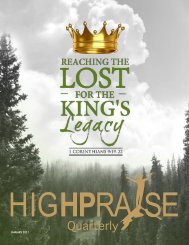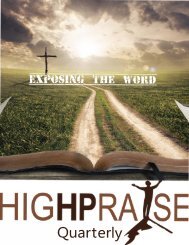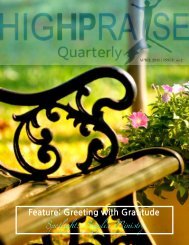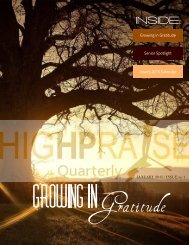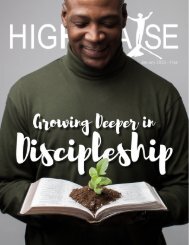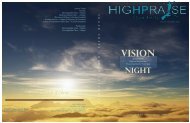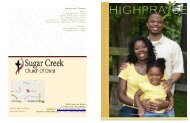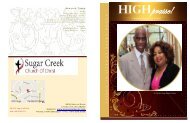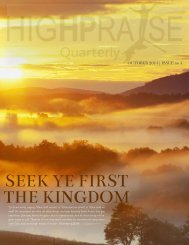You also want an ePaper? Increase the reach of your titles
YUMPU automatically turns print PDFs into web optimized ePapers that Google loves.
Americans loved it. Two of their favorite preachers were ___________________________and<br />
___________________________. Jonathan Edwards is often credited with starting the First<br />
Great Awakening in 1741 with his famous sermon 'Sinners in the Hands of an Angry God.'<br />
George Whitefield belonged to the Anglican <strong>Church</strong>. The famously cross-eyed evangelist<br />
helped spread the Awakening in England first and then in the colonies. Like Edwards,<br />
Whitefield taught that people needed to have changed, repentant hearts. His admonition that<br />
listeners think about how a sermon applies only to themselves was a jab at the Puritan<br />
tendency to watch each other for signs of evil. However, many of his sermons also<br />
underscored the futility of boring ritual as seen in the Anglican <strong>Church</strong> he came from.<br />
Whitefield is credited with starting the practice of preaching in ___________________________,<br />
since the <strong>Church</strong> of England wouldn't give him a pulpit.<br />
One of the most famous (or infamous) traveling preachers in the First Great Awakening was<br />
___________________________. Just as the Puritans had done, Davenport taught that people<br />
needed to avoid the influence of the Devil in everyday life. He held public<br />
___________________________ so his followers could burn the things that distracted or<br />
tempted them to pride. Non-religious books and luxury items commonly ended up in ashes.<br />
But one night, Davenport went too far in saying fancy clothes were luring people to vanity.<br />
Leading by example, he took off his pants and threw them in the fire! This demonstration<br />
turned off many of his followers.<br />
The Legacy of the Awakening<br />
As with the Enlightenment, it's sometimes difficult for modern Americans to imagine life<br />
before the Great Awakening because the movement helped establish the way we view<br />
religion even today. Instead of seeing faith as a matter of tradition, Americans now felt free to<br />
choose their own religious affiliation. New ___________________________ were founded, most<br />
of the established churches were reshaped and, by the 1760s, there was religious diversity in<br />
every colony. But the Great Awakening reached much further than church pews and may<br />
have been even more effective than the Enlightenment in shaking up the establishment.<br />
In the North, it challenged the authority of the Puritan church because anyone could step up<br />
to the pulpit and share his own testimony. Differences in doctrine came to be seen more as a<br />
matter of ___________________________, not a matter of ___________________________. The<br />
Awakening challenged the social order of the ___________________________ because slaves<br />
were as welcome as anyone else. The idea of salvation being available to anyone directly<br />
from God, regardless of race, gender or economic class, made church a thoroughly<br />
___________________________ experience. People became more tolerant, seeing themselves<br />
not as members of a particular religious group but as Americans who shared convictions<br />
about virtue, united in opposition against any establishment that tried to tell them how to<br />
think, feel or behave. In many ways, it prepared the colonists to defy the king and start a<br />
___________________________.<br />
The Awakening also fueled social reform. George Whitefield's death prompted a slave named<br />
Phillis Wheatley to publish a famous poem in his honor. Her obvious intellect, paired with the<br />
religious testimonies of escaped slaves, helped energize the northern








